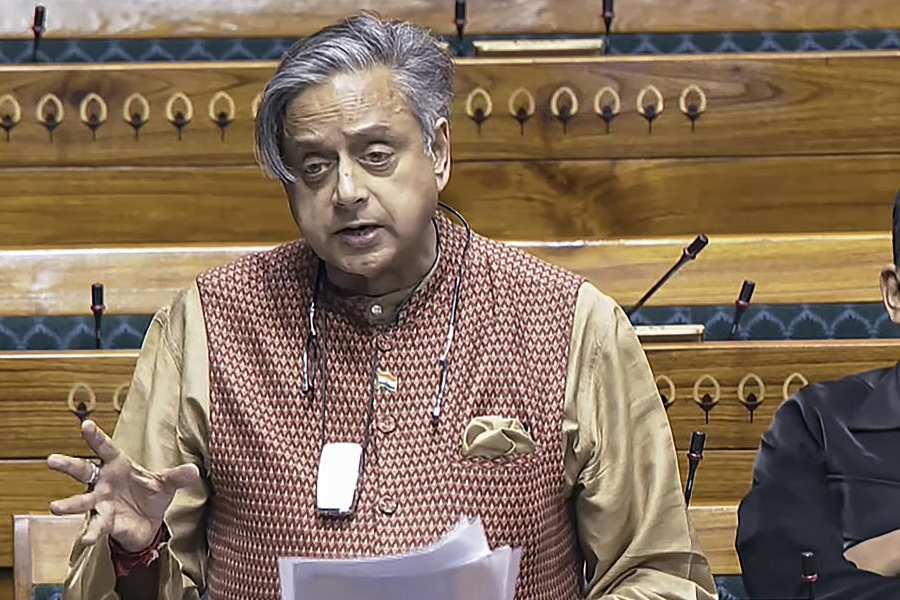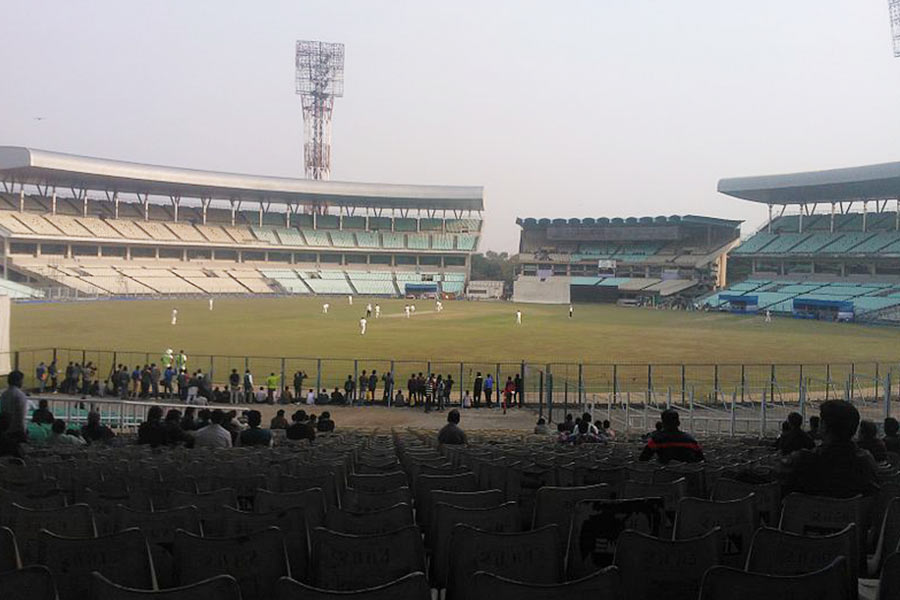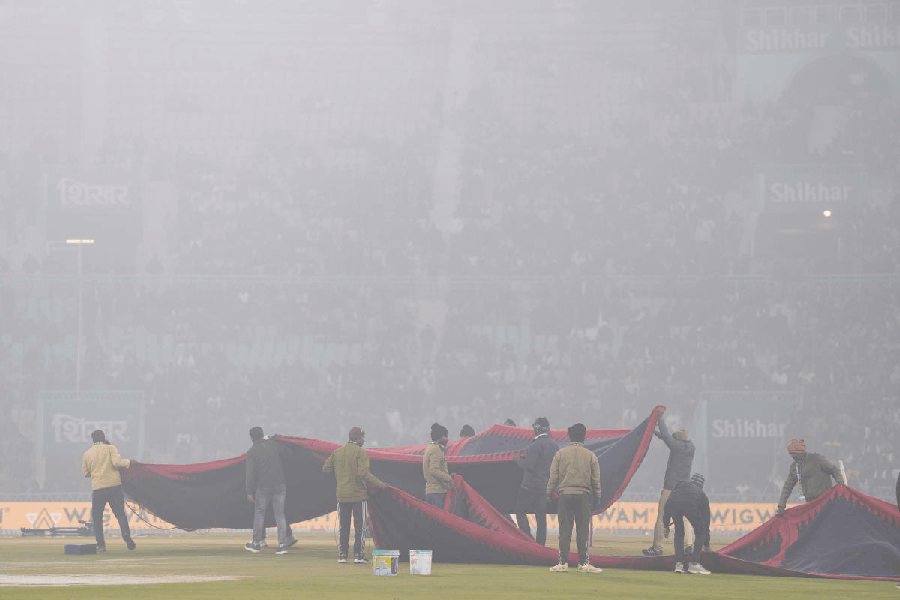|
|
| Model: Akanksha Photo: Indranil Mukherjee |
 |
It’s not a question that Arpita Kumar is often asked, but she gamely puts her mind to it. “Umm, how many of my women friends are not virgins? Let me see. Okay, one. No, two. Sorry, three, four? Actually, quite a few,” she replies.
Arpita knows what she is talking about. One of her friends has just returned from a hill station in Uttaranchal after spending a weekend with her boyfriend. Another has gone to Pushkar with her partner. A couple has been living together. A fourth friend is making plans for a night out with her classmate. Arpita and her friends are all students of St Stephen’s College.
Actress Khushboo has possibly not heard of them but may well have been referring to these Delhi teenagers when she said in an interview in Chennai last month that an educated Indian male shouldn’t expect his bride to be a virgin. The remark kicked up a furore, with angry and violent demonstrations being held in Tamil Nadu.
But a recent Telegraph-Mode survey conducted among collegegoers, students and call centre employees in the age group of 18 to 28 in Chennai shows that while most women still believe they are expected to be virgins till marriage, many have started questioning the belief. One out of two people think it’s unfair that men can have sex before they marry, but women are expected to be virgins. About 56 per cent of the respondents believe it is time men stopped expecting intact hymens in their brides. And an overwhelming 83 per cent think virginity is overrated.
In and out of Chennai, people are opening up to the idea of premarital sex. Reports from the five metros indicate that most young people believe sex before marriage is a fact of life. And virginity, quite a few stress, is nobody’s business but their own. “Virginity is what you can call ‘private property’,” says Gargi Shrivastav, a 23-year-old Mumbaikar.
The majority may still balk at sex before marriage, but for many, it’s no longer a taboo. Late last year, in what was called the MMS scandal, a Delhi school boy photographed his classmate with his mobile camera while she was performing oral sex on him.
And Delhi, many believe, is not an exception. “In Mumbai, nobody expects a woman to be a virgin,” declares Deepti D.V., a student of media studies in a Mumbai college. Adds Kavitha, a 20-year-old dentistry student of Chennai: “Six or seven out of every 10 unmarried women have had sex. It has become rampant in college hostels, partly due to peer pressure,” she says.
Changing sexual mores cut across class or region. In Hyderabad, college student K. Vijayakumari points out that sex before marriage is a way of life in the small tenement where she lives with her mother, who runs a canteen, and her father, an electrical assistant. “It has become immaterial whether we lose our virginity before marriage or after,” she says.
A recent global survey seems to underscore the trend. According to the Durex Global Sex Survey 2005, one out of four Indians thinks there is nothing wrong with sex before marriage. A Bangalore-based non-governmental organisation, Freedom Foundation, conducted a similar survey among young people employed in the software and BPO industry last year. It found that 38 per cent men and women believe premarital sex is permissible, while 25 per cent say they regularly indulge in casual sex.
“Premarital sex is a fact of life,” maintains sexologist Prakash Kothari, head, department of sexual medicine, KEM College, Mumbai. “One sees references to it right from the time of the Mahabharata,” he says. Adds Gautam Bhadra of the Centre for Studies in Social Sciences, Calcutta: “It would be wrong to assume that it is a recent phenomenon. But it is now out of the closet,” he says.
There are a few indicators closer to the present times. Hindi cinema, a chronicler of societal trends, has been dealing with premarital sex in quite a few films. Sex before marriage figures in Salaam Namaste and Hum Tum, and was the theme of Kya Kehna.
Television isn’t far behind either. MTV’s Pyaar, Vyaar and All That ? launched on November 14 ? is a soap focusing on what the channel calls “real youth issues”. In its maiden serial, Kitni Mast Hai Zindagi, launched late last year, the protagonist was a small-town girl who disapproved of the sexual ways of women in a big city. In the new series, on the other hand, there is a girl who doesn’t care two hoots about getting caught in an MMS controversy and one who believes in partying hard and in multiple partners.
“It’s a serious and real attempt at portraying the youth as they are today,” says Vikram Raizada, head of marketing, MTV India. Raizada, however, doesn’t believe that the Indian youth have extreme views on sex, even though the channel gets thousands of responses to its talk show called Kya Baat Hai on issues such as premarital sex and virginity.
Some would say that TV and the entertainment industry have done their bit to usher in the first stirrings of a sexual revolution. “Some years ago, if an actress wore a bikini in a film, it lingered in one’s mind,” says Mumbai-based call centre executive Adrian Rapose. “Today, every second song on TV has a woman in skimpy clothes,” he says.
“The electronic media titillates and, to an extent, even sanctions sexual exploration for young adults,” maintains Vibha Parthasarathi, former chairperson of the National Commission for Women and former principal, Sardar Patel Vidyalaya, Delhi. Parthasarathi, who believes that sexual activity is on the rise, also points out that abortions among unmarried women have been increasing as well.
Though there are no concrete figures on the rise in abortions in India, Delhi gynaecologist A.K. Bajaj says more and more young and unmarried women have been approaching her for an abortion. “I remember a 19-year-old asking me if she could get a concession on the fees, since she was coming to me for the second time,” she says.
The increase in the number of calls to helplines counselling the youth on sex would also indicate that sexual activity is on the rise. Tarshi (Talking About Reproductive and Sexual Health Issues), a Delhi-based organisation which runs a helpline for people with sex-related queries, has received 55,000 calls ever since it launched its service in 1996. “The number of calls coming in has definitely gone up with passing time, though it’s hard to say if it’s due to more people engaging in sexual acts or more people talking about it,” says Prabha Nagaraja, manager, programmes, Tarshi.
Sex, clearly, is no longer a subject that has to be brushed under the carpet. Which is why Nina Naik, chairperson, Karnataka State Council of Child Welfare (KSCC), is no longer surprised when young and educated women approach her for assistance.
Mothers wanting to surrender their children have an option to give them away to the state-run KSCC. Traditionally, mostly women who are not aware of or have no access to contraceptive methods approached the KSCC.
That’s no longer the case. For the last two years, single, young and educated women have been getting in touch with the KSCC to give away their children born out of wedlock. “Till two years ago, not one such woman had approached the KSCC,” says Naik. Now she gets two to three such cases every month. “Most of these women work with BPOs,” she says.
The workforce at call centres comprises young men and women in equal numbers, and casual sex in the workplace is not rare. “Night jobs in call centres and long work hours in the software industry give people more opportunity to mingle,” says Ali Khwaja, head of the Bangalore-based counselling centre, Banjara Academy. There has also been an attitudinal change among women. “With more women going out to work, opportunities for intercourse are more,” says Chennai journalist K. Jayalakshmi. “And there is a sizeable section among women who have relationships which they do not expect to end in marriage,” she says.
The dynamics of relationships are changing. An increasing number of women, most people agree, no longer feel that men and women have different sexual needs. “Adolescence has been advanced and marriage postponed,” says Mumbai psychiatrist Harish Shetty. “Not so long ago, nothing existed between the mangalsutra and the rakhi. Today, there is a wide range of relationships in this zone,” he says.
“One reason for changing sexual habits is the increasing cosmopolitan, footloose culture of society,” says T. Karunakaran, vice-chancellor, Gandhigram Rural University, Madurai. “Earlier, the attitude toward sex was silent and even violently controlled,” he says. Sexual activity is on the rise for another reason. There was a time when parents and other family members helped to keep a marriage going.
These pillars no longer exist, says G.K. Karanth, head, department of sociology, Institute for Social and Economic Change, Bangalore. “Since all these institutions have collapsed, the youth feel a need to know each other before entering into a marriage. Premarital sex is now just a part of the process of getting acquainted,” he says.
Not surprisingly, more and more unmarried women go to counsellors seeking advice on sex. “I personally counsel at least half-a-dozen such cases every month,” says Hyderabad-based doctor Krishnaveni. The impact of increased premarital sex will only be gauged in the years to come, though experts fear that it can lead to a host of problems ? starting with sexually-transmitted diseases to marital discord.
But, clearly, premarital sex ? contrary to what Khushboo’s detractors maintain ? is no longer anything to write home about.
“Fly-by-night flings are a great way to fill time till marriage,” sums up Rena Mishra, a 24-year-old software professional in Bangalore. And as Arka Mukhopadyaya, a 25-year-old theatre actor in the city, puts it, sex before marriage is a non-issue. “Everyone does it,” he says.











